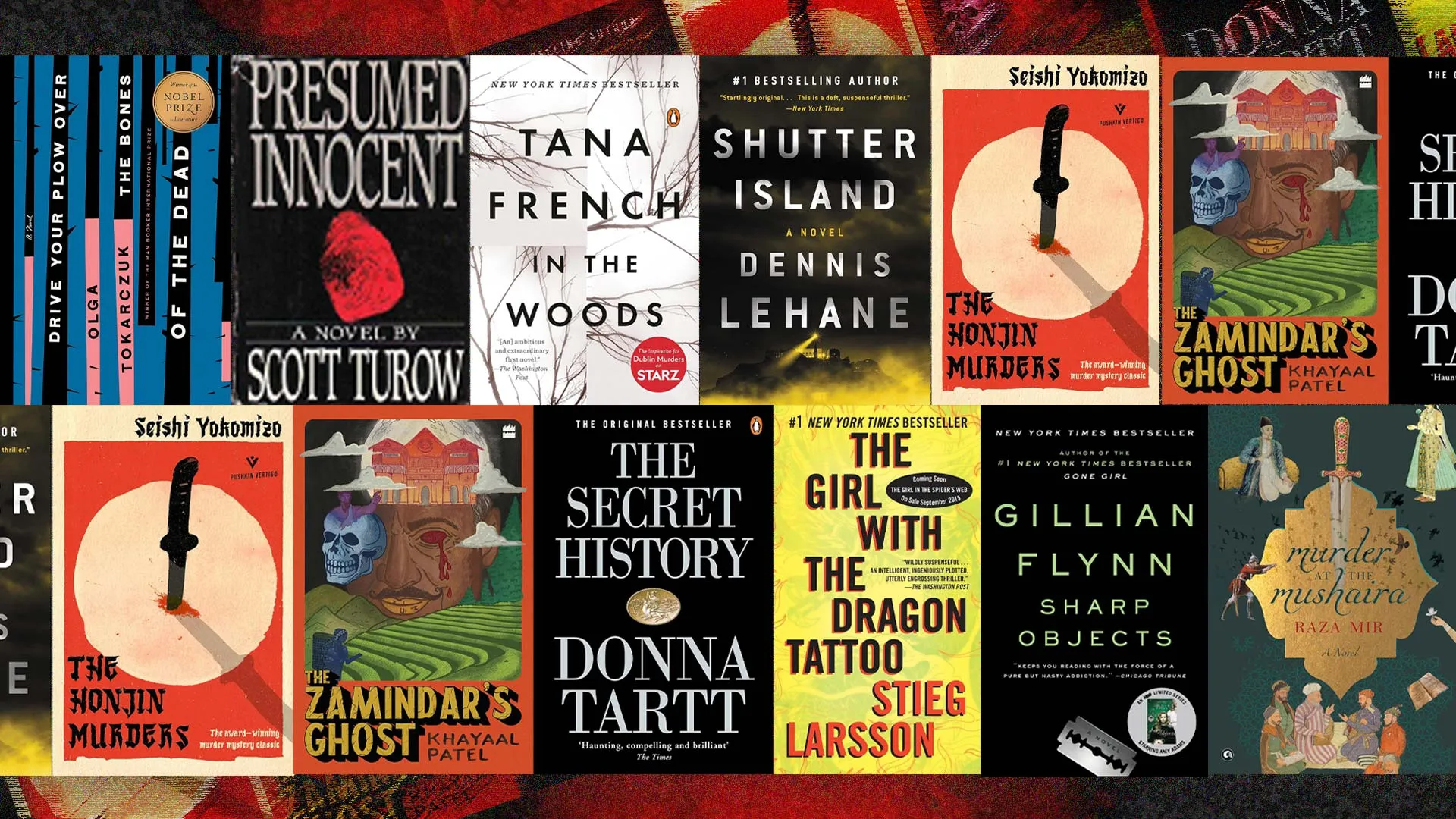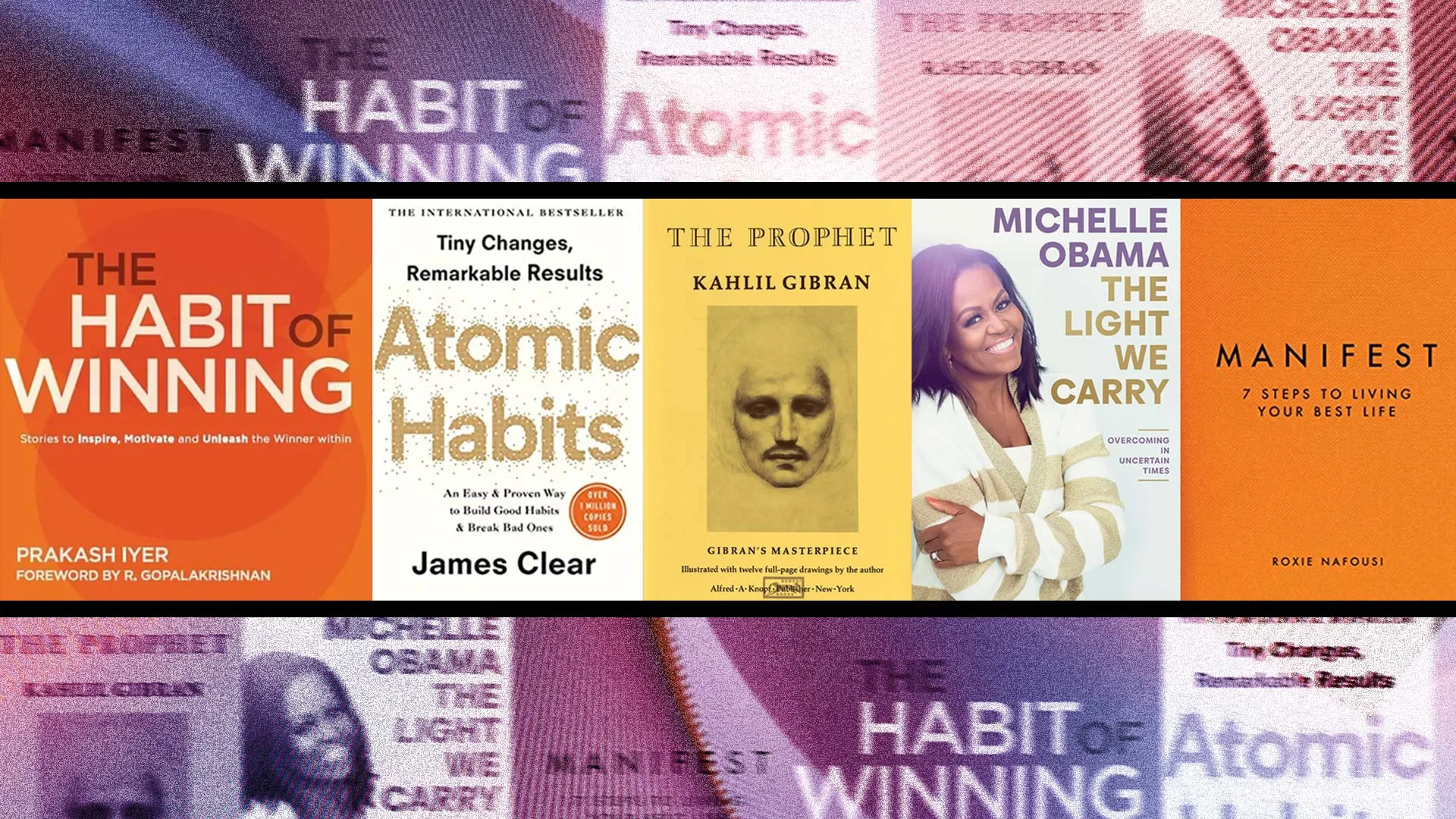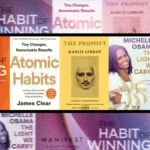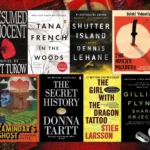Thriller Novels
Thriller novels hold a unique place in literature, captivating readers with suspense, high stakes, and the promise of a riveting journey. They offer an adrenaline-pumping escape, keeping readers on edge until the very last page. From psychological mind games to fast-paced action, the genre’s versatility appeals to a wide range of audiences. But what exactly makes thrillers so irresistible? It’s their ability to manipulate emotions, challenge intellect, and blur the lines between good and evil, leaving readers pondering long after the story ends.
A History of Thrillers
Thriller novels have a rich history, evolving over centuries to become one of the most popular genres today. The roots can be traced back to Gothic literature in the late 18th and early 19th centuries, with works like Mary Shelley’s Frankenstein and Bram Stoker’s Dracula, which infused suspense with elements of horror.
Edgar Allan Poe, often regarded as the father of the modern thriller, brought psychological depth and mystery to the genre with stories like The Tell-Tale Heart. Later, Arthur Conan Doyle revolutionized detective thrillers with his iconic character Sherlock Holmes, emphasizing intellect and logic to solve crimes.
The 20th century saw the rise of spy and crime thrillers, with writers like Agatha Christie, Graham Greene, and John le Carré paving the way. In the 21st century, authors like Gillian Flynn (Gone Girl), Paula Hawkins (The Girl on the Train), and Dan Brown (The Da Vinci Code) redefined thrillers for contemporary audiences with gripping narratives and unexpected twists.
Defining the Thriller Genre
At its core, a thriller is designed to evoke suspense and excitement. These thriller novels thrive on uncertainty and tension, often pitting characters against impossible odds.
Key Elements of Thrillers:
- High Stakes: The protagonist faces dire consequences if they fail.
- Pacing: Rapid developments keep readers hooked.
- Twists and Turns: Plot twists create unpredictability.
- A Villain Worth Remembering: A formidable antagonist enhances the stakes.
Subgenres of Thrillers:
- Psychological Thrillers: Focus on mental and emotional conflicts (The Silent Patient by Alex Michaelides).
- Crime Thrillers: Centered on solving or committing crimes (The Girl with the Dragon Tattoo by Stieg Larsson).
- Espionage Thrillers: Feature spies and covert missions (Tinker, Tailor, Soldier, Spy by John le Carré).
- Legal Thrillers: Blend courtroom drama with suspense (The Firm by John Grisham).
- Medical Thrillers: Set in the world of medicine (Coma by Robin Cook).
Why Readers Love Thrillers
Emotional Rollercoaster
Thrillers are a masterclass in emotional manipulation. They plunge readers into a whirlwind of fear, anticipation, and excitement, making each chapter a gripping experience. The constant uncertainty keeps adrenaline levels high.
Complex Characters
Thriller novels often feature deeply flawed yet relatable characters. Protagonists and antagonists alike operate in morally gray areas, making their choices unpredictable and compelling.
Exploration of Human Nature
Thrillers delve into the human psyche, examining themes of greed, fear, revenge, and justice. They often challenge readers to question their own beliefs and instincts.
Notable Thriller Novels
Classics of Thriller Novels
- The Silence of the Lambs by Thomas Harris: A chilling psychological thriller featuring the infamous Hannibal Lecter.
- Rebecca by Daphne du Maurier: A Gothic thriller with layers of suspense and mystery.
- And Then There Were None by Agatha Christie: A masterclass in suspenseful storytelling.
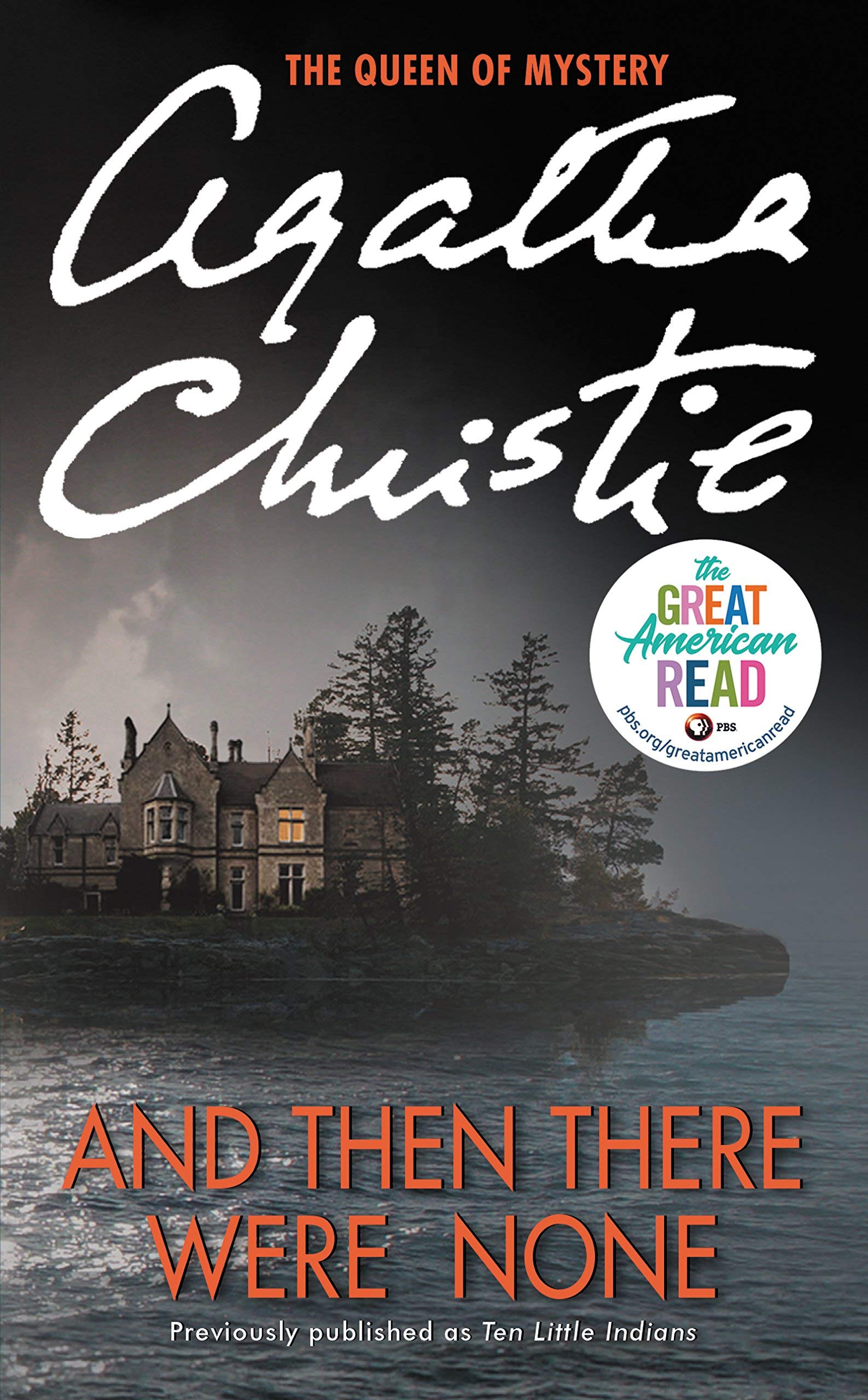
Modern Thrillers
- Gone Girl by Gillian Flynn: A psychological thriller with an unforgettable twist.
- The Girl on the Train by Paula Hawkins: A story of obsession and unreliable narration.
- The Da Vinci Code by Dan Brown: A mix of history, art, and high-stakes adventure.
These novels exemplify the diversity and depth of the thriller genre.
Key Thriller Tropes
Red Herrings
Thrillers are known for misleading readers. A cleverly placed red herring can send audiences down the wrong path, heightening the impact of the final reveal.
The Unreliable Narrator
This trope, popularized by books like Gone Girl, keeps readers guessing about what’s real and what’s fabricated.
Race Against Time
Many thrillers involve ticking clocks, whether it’s solving a crime or stopping a disaster, creating an intense sense of urgency.
Crafting a Thriller Novel
Pacing and Tension
The art of a good thriller lies in pacing. Each chapter must build on the tension, with cliffhangers that compel readers to turn the page.
Layered Characters
Thrillers thrive on moral ambiguity. A flawed protagonist or a sympathetic villain can elevate the narrative, making readers question their loyalties.
The Twist
A shocking twist is the hallmark of a great thriller. It should be unpredictable yet logical in hindsight, leaving readers in awe of the writer’s skill.
Impact of Thriller Novels in Pop Culture
Thrillers have made a significant impact on pop culture, inspiring blockbuster movies and TV shows. Classics like The Silence of the Lambs, The Bourne Identity, and The Girl with the Dragon Tattoo were adapted into critically acclaimed films, reaching wider audiences.
TV shows like Breaking Bad and Mindhunter borrow heavily from thriller tropes, proving the genre’s versatility across mediums. Additionally, thrillers often reflect societal anxieties, offering commentary on crime, politics, and human behavior.
Why Thrillers Will Always Endure
The timeless appeal of thrillers lies in their ability to evolve. With advancements in technology, societal shifts, and new storytelling techniques, the genre continues to reinvent itself. The universal love for suspense ensures that thrillers will remain a staple in literature for generations to come.
Conclusion
Thriller novels are more than just stories; they are experiences. They challenge, excite, and entertain, leaving readers eager for more. Whether you’re a seasoned thriller fan or a newcomer, there’s always a new mystery to unravel and a twist waiting to surprise you. So, grab a thriller, buckle up, and prepare for a wild ride!
The Best Thrillers of All Time – Explore Now!!!
The Allure of Crime Thriller Novels
Crime thriller novels are among the most compelling genres in literature, combining elements of suspense, mystery, and high-stakes drama. They delve into the darkest corners of human nature, exploring motives, morality, and the consequences of crime. These novels not only entertain but also challenge readers to solve puzzles, unravel complex characters, and confront ethical dilemmas.
What Defines a Crime Thriller?
Crime thriller novels are a subgenre of thrillers that focus on criminal activities, investigations, and the pursuit of justice—or revenge. Unlike traditional mysteries, which often revolve around “whodunit,” crime thrillers emphasize how and why the crime unfolds, immersing readers in the tension and danger faced by the characters.
Key Features:
- Intense Suspense: Every page brims with tension, keeping readers on edge.
- Complex Characters: Protagonists are often detectives, investigators, or even criminals with rich backstories and moral ambiguity.
- High Stakes: The consequences of failure are often dire—life, freedom, or justice is on the line.
- Twists and Turns: Unexpected revelations are the lifeblood of crime thrillers, ensuring unpredictability.
A Brief History of Crime Thriller novels
The roots of crime thriller novels can be traced back to Gothic literature, where tales of mystery and suspense were interwoven with dark, foreboding settings. Edgar Allan Poe’s The Murders in the Rue Morgue (1841) is often regarded as one of the first detective stories, setting the stage for the genre.
In the late 19th century, Arthur Conan Doyle’s Sherlock Holmes series became iconic, offering a blend of logic, deduction, and suspense. By the 20th century, writers like Dashiell Hammett (The Maltese Falcon) and Raymond Chandler (The Big Sleep) pioneered the hardboiled detective genre, characterized by gritty realism and morally complex characters.
The modern era of crime thrillers has seen the rise of psychological elements, with authors like Gillian Flynn (Gone Girl) and Paula Hawkins (The Girl on the Train) adding layers of emotional depth and unreliable narration to the genre.
Why Crime Thrillers Are So Popular
1. The Thrill of the Chase
Crime thrillers captivate readers by immersing them in the pursuit of justice. Whether it’s a detective piecing together clues or a fugitive evading capture, the tension keeps readers turning pages.
2. Exploration of Morality
These novels often blur the lines between right and wrong, forcing readers to grapple with ethical dilemmas. Can a crime ever be justified? Are the ends worth the means?
3. Psychological Insight
Crime thrillers delve deep into the minds of criminals and investigators alike, offering fascinating glimpses into human behavior, motivation, and the effects of trauma.
4. Engaging Puzzles
The investigative aspect of crime thrillers challenges readers to solve mysteries alongside the protagonists, adding an interactive element to the reading experience.
Subgenres of Crime Thrillers
Crime thrillers are incredibly diverse, encompassing a wide range of styles and themes.
1. Police Procedurals
These focus on the detailed processes of law enforcement, offering realistic depictions of investigations (The Cuckoo’s Calling by Robert Galbraith).
2. Psychological Crime Thrillers
Highlighting the mental and emotional conflicts of characters, these novels often feature unreliable narrators (The Girl on the Train by Paula Hawkins).
3. Legal Crime Thrillers
Centered around courtroom drama, these explore the intersection of crime and justice (Presumed Innocent by Scott Turow).
4. Noir and Hardboiled Thrillers
Known for their gritty settings and morally ambiguous characters (The Big Sleep by Raymond Chandler).
5. Serial Killer Thrillers
Exploring the mind of killers and those who hunt them (The Silence of the Lambs by Thomas Harris).
Notable Crime Thriller Novels
1. Gone Girl by Gillian Flynn
A modern masterpiece of psychological suspense, Gone Girl delves into the dark secrets of a seemingly perfect marriage. With its shocking twists and unreliable narrators, the novel redefined the genre.
2. The Girl with the Dragon Tattoo by Stieg Larsson
This international bestseller combines investigative journalism with a chilling crime mystery, introducing readers to the unforgettable Lisbeth Salander.
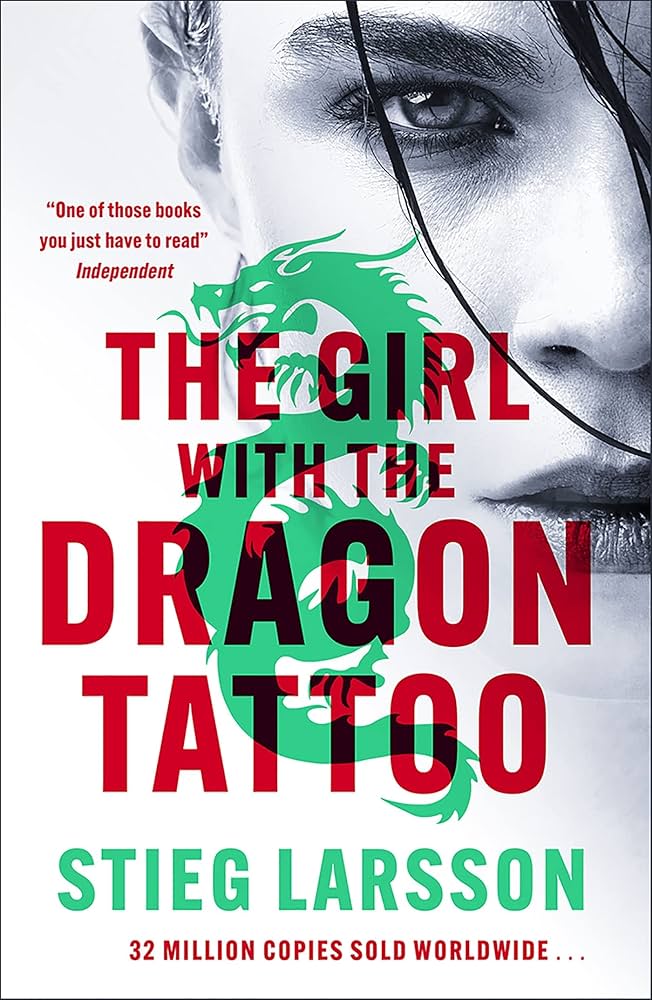
3. The Silence of the Lambs by Thomas Harris
A classic that blends psychological tension with horror, featuring the iconic Hannibal Lecter and FBI trainee Clarice Starling.
4. The Snowman by Jo Nesbø
A gripping Scandinavian crime thriller featuring detective Harry Hole, who hunts a brutal serial killer.
5. In the Woods by Tana French
A hauntingly atmospheric crime thriller that weaves past traumas with a contemporary murder investigation.
Crime Thriller Tropes and Techniques
1. The Red Herring
Authors often use misleading clues to divert readers from the true culprit, heightening the impact of the final reveal.
2. Unreliable Narrators
By presenting skewed perspectives, writers like Gillian Flynn and Paula Hawkins keep readers guessing about what’s real.
3. Morally Complex Characters
Protagonists in crime thrillers are rarely perfect. They often grapple with personal demons, making their journeys more relatable and compelling.
4. Twist Endings
A hallmark of the genre, the twist ending redefines everything readers thought they knew about the story.
Crafting a Crime Thriller
Building Suspense
Suspense is the lifeblood of crime thrillers. Authors use cliffhangers, time constraints, and alternating perspectives to maintain tension throughout the narrative.
Creating Layered Characters
A great crime thriller hinges on its characters. The protagonist—whether a detective, journalist, or ordinary citizen—must be flawed yet relatable. Meanwhile, the antagonist should be just as compelling, with clear motivations and a strong presence.
The Role of Setting
The setting often acts as a character in crime thrillers, enhancing the mood and tone. From the foggy streets of Victorian London to the isolated Nordic landscapes of Scandinavian noir, atmosphere plays a crucial role in storytelling.
The Influence of Crime Thrillers on Pop Culture
Crime thrillers have made a significant impact on pop culture, inspiring countless film and TV adaptations. Classics like The Silence of the Lambs and Gone Girl became cinematic phenomena, while TV series like Mindhunter, True Detective, and Broadchurch brought the genre to the small screen.
Beyond entertainment, these stories often spark conversations about real-world issues like systemic corruption, the psychology of criminals, and the pursuit of justice.
The Timeless Appeal of Crime Thrillers
Crime thrillers will always captivate readers because they tap into universal fears and desires. They offer a safe space to confront danger, solve puzzles, and explore the darker side of humanity. As society evolves, so too will the genre, ensuring its relevance for generations to come.
Conclusion
Crime thrillers are more than just page-turners; they’re profound explorations of human nature, morality, and justice. Whether you’re drawn to intricate investigations, psychological depth, or heart-pounding suspense, there’s a crime thriller out there waiting to captivate you. Dive in, and prepare for a gripping journey through the darker corners of the human psyche.
Best Psychological Thriller Novels
Psychological thrillers are a captivating subgenre that delves deep into the human mind, playing with themes of trust, perception, and reality. These novels keep readers on edge, blurring the line between truth and deception, while exploring the complexities of human behavior. Below is a curated list of some of the best psychological thrillers that have left an indelible mark on the genre.
1. Gone Girl by Gillian Flynn
One of the most iconic psychological thrillers of the modern era, Gone Girl is a masterpiece of manipulation and deceit. The story revolves around Nick and Amy Dunne, whose seemingly perfect marriage unravels when Amy mysteriously disappears. As suspicion falls on Nick, the narrative alternates between his perspective and Amy’s diary, revealing shocking secrets and unexpected twists.
Why It Stands Out:
- The unreliable narrators keep readers guessing.
- It offers a scathing commentary on marriage, media, and societal expectations.
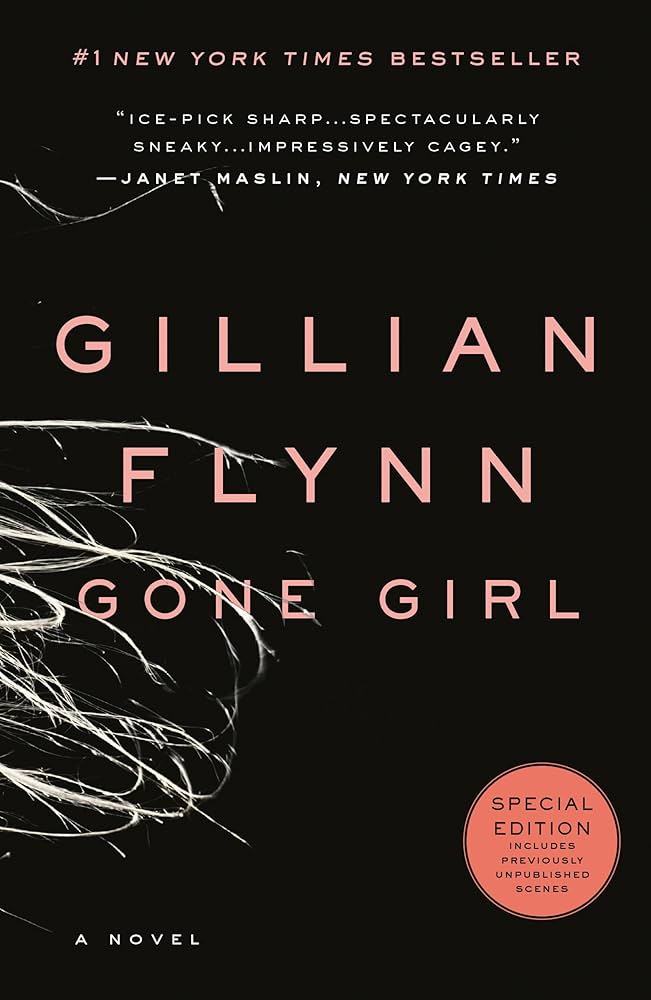
2. The Girl on the Train by Paula Hawkins
This gripping novel follows Rachel, an alcoholic woman who commutes by train daily, fixating on a couple she observes from the window. When the woman goes missing, Rachel becomes entangled in the investigation, uncovering dark truths about her own past.
Why It Stands Out:
- The use of multiple unreliable narrators adds layers of complexity.
- Themes of memory, addiction, and obsession make it emotionally charged.
3. The Silent Patient by Alex Michaelides
Alicia Berenson, a famous artist, shoots her husband and then goes completely silent, refusing to explain her actions. Theo Faber, a psychotherapist, becomes obsessed with uncovering the truth. This psychological thriller is as much about Alicia’s motives as it is about Theo’s own psyche.
Why It Stands Out:
- The jaw-dropping twist at the end redefines the entire story.
- The exploration of trauma and obsession is deeply thought-provoking.
4. Before I Go to Sleep by S.J. Watson
Christine Lucas wakes up every day with no memory of her past, her life wiped clean due to amnesia. As she pieces together her fragmented memories with the help of a journal and a doctor, she begins to question the intentions of those closest to her.
Why It Stands Out:
- The protagonist’s amnesia creates a disorienting and suspenseful narrative.
- Themes of identity and trust keep readers hooked until the shocking finale.
5. Sharp Objects by Gillian Flynn
In her debut novel, Gillian Flynn crafts a dark and haunting tale about journalist Camille Preaker, who returns to her hometown to cover a series of murders. Confronting her own traumatic past, Camille finds herself entangled in the twisted dynamics of her dysfunctional family.
Why It Stands Out:
- The exploration of self-harm and toxic family relationships is raw and unflinching.
- The eerie small-town setting enhances the tension.
6. The Couple Next Door by Shari Lapena
Anne and Marco Conti leave their baby at home while attending a dinner party at their neighbor’s house. When they return, their child is missing. What follows is a gripping investigation filled with secrets, lies, and shocking revelations about the couple’s marriage.
Why It Stands Out:
- The fast-paced plot is filled with unexpected twists.
- Themes of parental guilt and trust add emotional depth.
7. Big Little Lies by Liane Moriarty
While not a traditional psychological thriller, this novel masterfully weaves suspense with a deep exploration of the lives of three women in a wealthy seaside town. Their secrets and lies culminate in a shocking act of violence at a school fundraiser.
Why It Stands Out:
- The blend of humor, drama, and suspense creates a unique tone.
- It tackles heavy themes like domestic abuse and friendship with sensitivity.
8. We Need to Talk About Kevin by Lionel Shriver
Told through letters written by Eva to her estranged husband, this haunting novel examines the troubled relationship between a mother and her son, Kevin, who commits a horrific act of violence.
Why It Stands Out:
- The psychological depth of Eva’s guilt and Kevin’s sociopathy is chilling.
- The narrative challenges readers to grapple with nature versus nurture debates.
9. Behind Closed Doors by B.A. Paris
Grace and Jack Angel seem like the perfect couple, but behind closed doors lies a sinister reality. Grace is trapped in a controlling and abusive relationship, and Jack’s charm hides his dark, manipulative nature.
Why It Stands Out:
- The claustrophobic tension keeps readers on edge.
- Themes of power, control, and survival are explored in chilling detail.
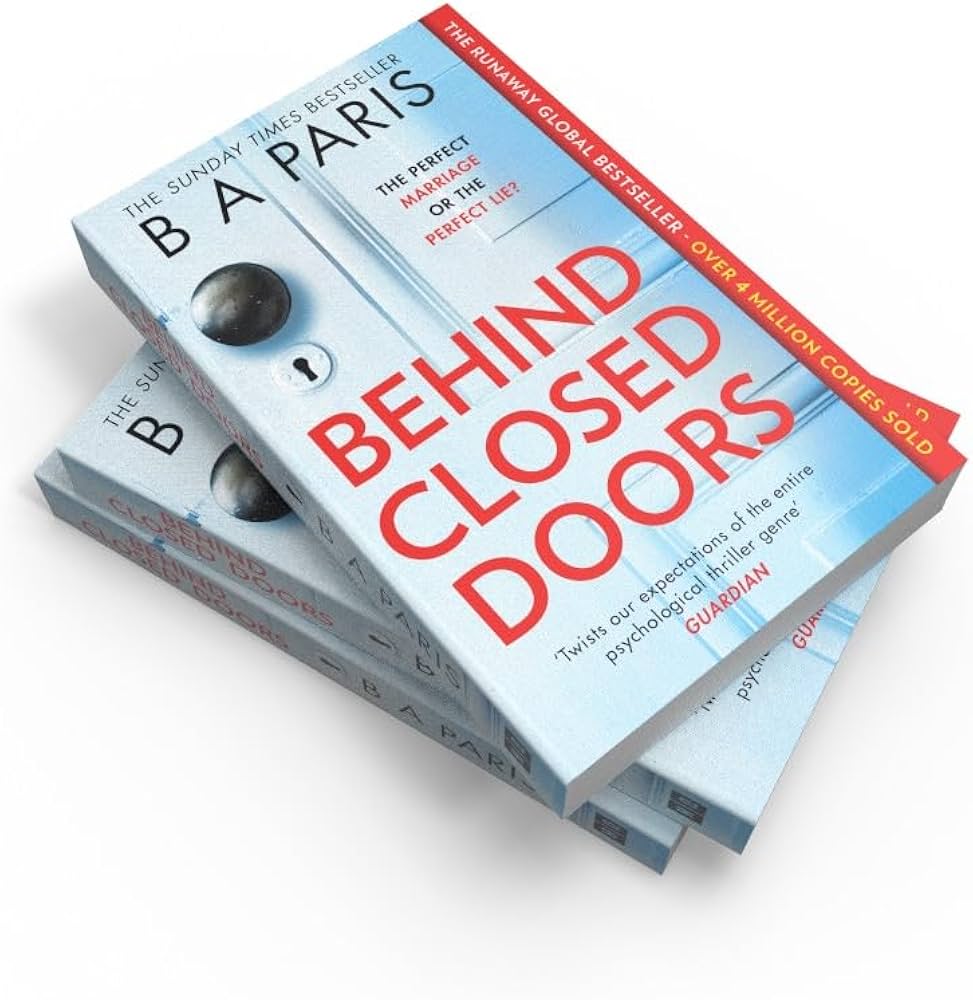
10. The Woman in the Window by A.J. Finn
Anna Fox, an agoraphobic woman, spends her days watching her neighbors from her window. When she witnesses a violent act in the house across the street, her already fragile reality begins to unravel.
Why It Stands Out:
- The unreliable narrator and confined setting create a sense of paranoia.
- It’s a modern homage to Hitchcock’s Rear Window.
11. Verity by Colleen Hoover
This novel follows struggling writer Lowen Ashleigh, who is hired to complete a bestselling series after the original author, Verity Crawford, is incapacitated. While going through Verity’s notes, Lowen uncovers a chilling autobiography that reveals dark secrets.
Why It Stands Out:
- The blend of romance and psychological suspense is unique.
- The ending leaves readers questioning everything.
12. In the Woods by Tana French
Detective Rob Ryan investigates a murder in a small Irish town, but the case forces him to confront repressed memories of a traumatic event from his childhood.
Why It Stands Out:
- The atmospheric writing immerses readers in the mystery.
- The interplay between past and present creates a haunting narrative.
Themes and Characteristics of Psychological Thrillers
Psychological thrillers are defined by their exploration of:
- Unreliable Narration: Characters whose perspectives distort reality (Gone Girl, The Silent Patient).
- Mental Illness: Protagonists grappling with trauma, paranoia, or amnesia (Before I Go to Sleep, The Woman in the Window).
- Twists and Turns: Shocking revelations that upend the plot.
- Morality and Deception: Exploring the gray areas of human behavior.
These elements create stories that are as emotionally gripping as they are intellectually stimulating.
Conclusion
Psychological thrillers captivate readers by diving into the depths of human psychology, blending suspense with emotional complexity. From tales of unreliable narrators to gripping explorations of trauma and obsession, these novels offer a rollercoaster of twists and turns that linger long after the final page.
Whether you’re new to the genre or a seasoned fan, the books on this list are sure to keep you hooked. Dive in, and prepare for a thrilling journey through the human mind. |Thriller Novels
Let me know if you’d like this expanded further!
More Posts :
Frequently Asked Questions
Which is the best thriller novel?
The best thriller novel is subjective, but Gone Girl by Gillian Flynn is widely acclaimed for its shocking twists, unreliable narrators, and psychological depth. It masterfully blends suspense and dark humor, keeping readers guessing until the final page. Its influence on modern thrillers cements its place as a genre-defining masterpiece.
What is a good psychological thriller novel?
A great psychological thriller is The Silent Patient by Alex Michaelides. It follows Alicia Berenson, a woman who stops speaking after a shocking crime, and Theo Faber, the psychotherapist determined to uncover her secrets. Packed with suspense and a jaw-dropping twist, it’s an unforgettable exploration of obsession and the human mind.
Is a thriller a novel?
Yes, a thriller is a type of novel designed to create suspense, excitement, and tension. It often features high-stakes scenarios, unexpected twists, and fast-paced plots. Thrillers span various subgenres, including psychological, crime, and political thrillers, captivating readers with gripping narratives that keep them on edge until the very end.
What are the 3 C’s of thriller?
The 3 C’s of thrillers are Conflict, Characters, and Cliffhangers. Conflict drives the tension, often involving life-threatening stakes. Compelling characters, both protagonists and antagonists, add depth and relatability. Cliffhangers maintain suspense, keeping readers hooked by leaving crucial questions unanswered until the very end. Together, they create a gripping, edge-of-your-seat experience.
What is the difference between suspense and thriller novels?
Suspense novels focus on building tension and uncertainty, often with slower pacing and psychological depth. Thriller novels, on the other hand, are fast-paced, action-driven, and emphasize high-stakes scenarios. While suspense keeps readers guessing, thrillers create urgency with twists and danger, often blending the two for maximum engagement.| thriller novels
